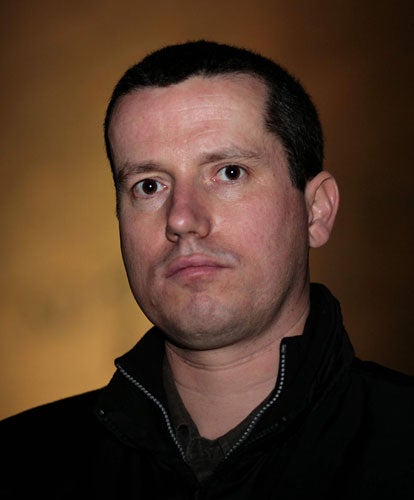Whistle-blower urges Iraq war public inquiry
Former diplomat tells of 'fundamental failure of transparency' in government

A large number of secret documents detailing government blunders over Iraq remain buried in Whitehall, a Foreign Office whistle-blower said yesterday as he called for a full public inquiry into the war.
Carne Ross, formerly Britain's top Iraq specialist at the United Nations, protested that the Butler and Hutton inquiries had not fully examined the events leading to military action in 2003. He told MPs, who are investigating leaks and whistle-blowing by civil servants, that the intelligence available to the Foreign Office made it "very clear" that Saddam Hussein did not possess weapons of mass destruction. But he protested that he was not given a proper chance to raise his worries with ministers in the build-up to war.
Mr Ross resigned in 2004 as a civil servant after giving anonymous evidence to the Butler inquiry and is now an independent diplomat.
Giving evidence by videolink from New York to the Commons Public Administration Committee, he said: "I feel very strongly that there has still not been proper accountability and scrutiny into what happened in Iraq.
"There should be a full public inquiry or parliamentary inquiry into the decision-making that took place. Hutton and Butler are by no means sufficient to that purpose and it is disgraceful the Government pretends they are.
"A lot of facts about the run-up to this war have yet to come to light which should come to light and which the public deserves to know.
"There are many other people involved who have yet to tell their story and yet to have been questioned by you or Parliament or anyone else. There are many documents to come to light."
Mr Ross told the committee that officials were driven to desperate measures because of a "fundamental failure of transparency and accountability" within the Government.
He said he had tried to register his alarm over the rush to war during snatched conversations with ministers during their visits to New York, but he was aware of the danger of being labelled a "naïve troublemaker" by speaking out too forcefully.
Another whistle-blower, Brian Jones, the former head of the nuclear, chemical and biological branch of the Ministry of Defence's defence intelligence staff who was a key witness in the Hutton inquiry, said he was "surprised" that MPs did not spot the flaws in the September 2002 dossier that made the case for war.
Dr Jones, who told the Hutton inquiry of his suspicions that evidence was being manipulated, said: "I don't think it needed someone of my expertise to look at the dossier and see the difference between the prime minister's foreword and what was in the main body of the dossier."
He added: "I feel that you gentlemen have been either deliberately or accidentally misled and these incidents have not been followed up. I think that there has been a great laxity and that won't encourage people like me or my colleagues to come to you."
Gordon Brown has resisted calls from the Conservatives and Liberal Democrats for a public inquiry until all British troops have returned from Iraq, which delays any investigation until next year.
Last night a Downing Street spokesman said the Prime Minister's view had not changed. He added: "Both the Butler and Hutton inquiries had access to all of the papers they felt were necessary."
Katharine Gun, a former linguist at GCHQ who leaked details of an alleged plot to bug UN delegates before the Iraq war, told the committee that she had no choice but to break the Official Secrets Act.
She was initially charged with breaking the Act after leaking information to the press, only for the case against her to be dropped.
Ms Gun said she suspected that that had happened because ministers feared a jury would acquit her and thereby create a precedent which would encourage further leaking.
Subscribe to Independent Premium to bookmark this article
Want to bookmark your favourite articles and stories to read or reference later? Start your Independent Premium subscription today.

Join our commenting forum
Join thought-provoking conversations, follow other Independent readers and see their replies